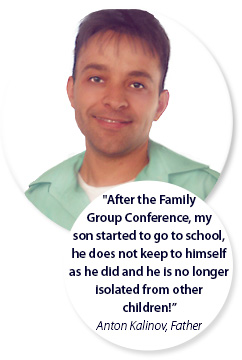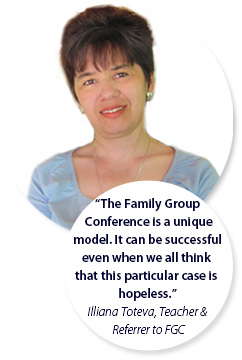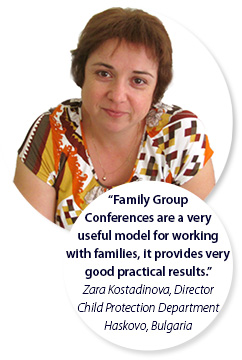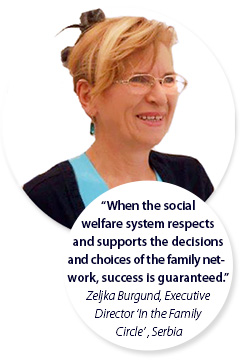International FGC for a young offender
Kim is a non-EU citizen and committed a crime in Stuttgart. The youth welfare service in criminal proceedings assessed the young person’s educational needs and used the time in pre-trial detention to organize an FGC for Kim. What made this special was that the FGC was coordinated by an organization from Kim’s home country. The online meeting was held with four family members, the coordinator, the local social worker, and Kim in the detention center. “Kim lives with his family in his home country, where he has a stable environment, even though there are stress factors in the family,” said the social worker. “Kim has not yet completed his schooling, and there are also psychological stresses.”
The FGC was intended to propose a concrete plan for Kim’s future to the court. “The online conference worked very well, both technically and in terms of the proceedings,” says the social worker. The prison did not impose any requirements for a supervisor to be present. “Everyone introduced themselves and their role, we presented the current situation and the motivation for the FGC. Essentially, it was to focus on four questions: How is Kim supported emotionally and practically by the family? What can Kim do professionally? Who will help Kim with this? What happens if Kim has mental health issues?” The family discussed it together and decided who would call whom, who would accompany Kim and support him. “Kim was fully involved. It was about creating a kind of roadmap for Kim’s life, and Kim and his family responded well to the acute problem situation.”
The institutional cooperation worked well. “It was down to my own commitment, and it was an advantage that the FGC office in Stuttgart already had contacts with the local authorities. They saw Kim’s plight. There was an element of luck involved, but all the hurdles were overcome.”
It was helpful that an experienced and technically savvy coordinator conducted the meeting. “Beforehand, I was tense, wondering if everything would work out, a little nervous, but also curious. It turned out that the family is very close-knit. They were able to engage with the FGC and showed that they are reliable and want to be a support for Kim.” The conversation was therefore relaxed.
We got through it in two hours,” said the social worker. “Now we’re waiting to see what the court decides. The FGC has made specific arrangements about who will take care of Kim’s college application, who will organize free time, and who will take Kim to the doctor.”
The conclusion? “The bottom line is that every social worker needs to know that the family has the most contact with the person affected and that it’s important for them to have something to do, something to work on,” says the social worker. “The FGC is always a good opportunity to think outside the box, a flexible tool for responding to special situations.”
A story from Germany
<< back to overview




